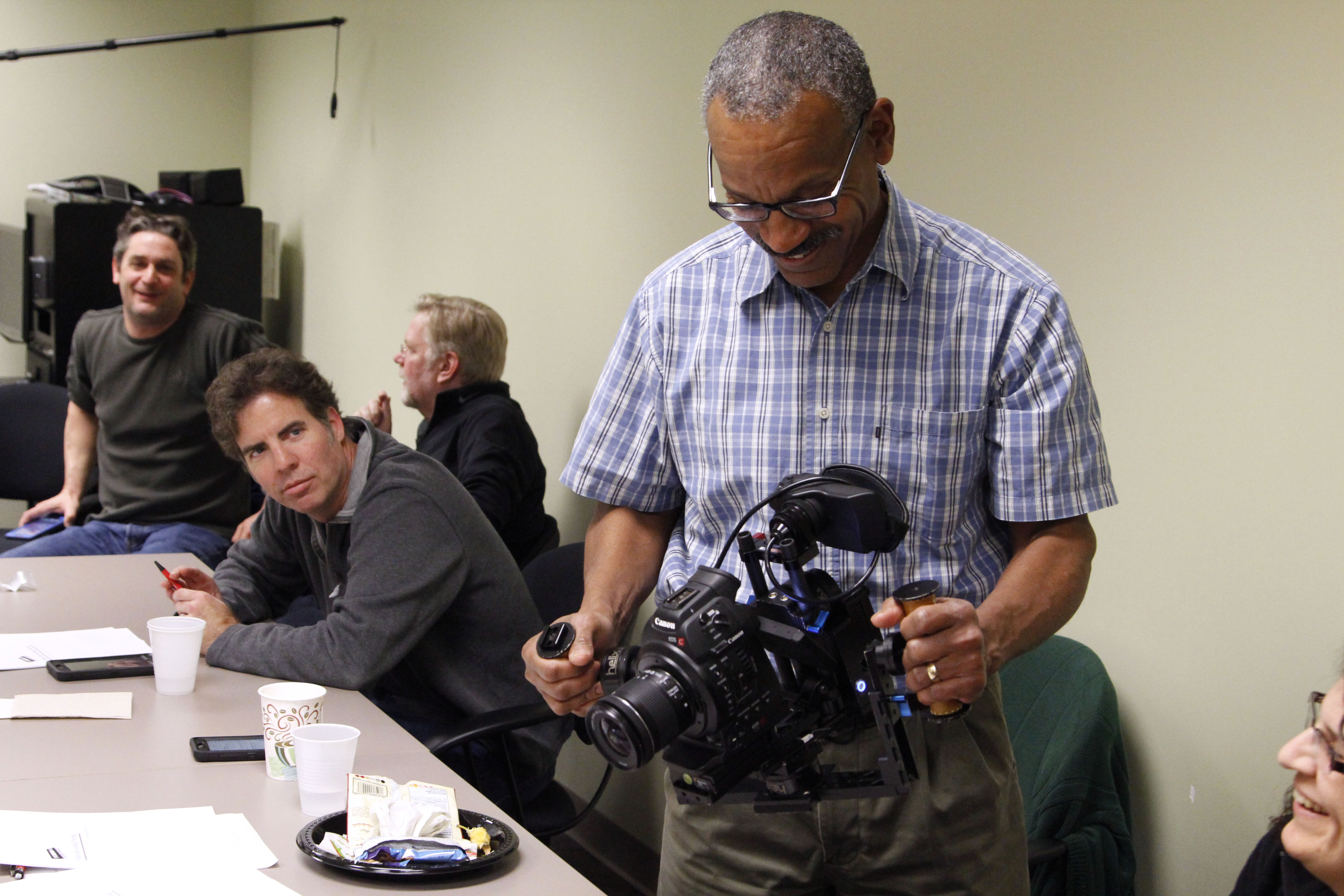Creative arts well-represented in Matter’s second startup class

The seven startups selected by Matter to be a part of its second accelerator class participated in a boot camp last week at the outset of their four-month program. (Photo: Matter Ventures)
For its second class of startups, Matter Ventures is getting creative.

The seven startups selected by Matter to be a part of its second accelerator class participate in a boot camp last week at the outset of their four-month program. (Photo: Jigar Mehta)
The San Francisco–based startup accelerator, funded by KQED and the Knight Foundation and owned in part by Public Radio Exchange, announced Wednesday a new round of seven early-stage companies joining Matter Two. The first round comprised six startups who incubated at Matter from March to June.
The second group of participants began a four-month crash course in business development last week with a weeklong boot camp overseen by Matter CEO Corey Ford. Several of the startups cater to the creative arts, working with writers, performers and visual artists. Others focus on journalists, online publishers and users of social networks.
Each startup receives an initial $50,000 investment from Matter, along with collaborative office space in the accelerator’s San Francisco headquarters and a shot at attracting investors at the accelerator’s concluding Demo Day event, slated for February. Matter aims to cycle through two classes of startups each year, with each funding partner and part-owner earning an equity stake in the startups.
“I wouldn’t say that was the primary selection for us, to have [creativity] as a theme, but it ended up being a strong one that emerged as we selected our finalists,” said Jake Shapiro, CEO of PRX and a founding partner of Matter. As themes emerge throughout the application process, Matter seeks companies whose interests and goals complement each other, Shapiro said.
Matter required all applicants for its second round to create a profile on AngelList, a network for startups and entrepreneurs. Word of mouth from the first class drew applications from several startups outside the U.S. Europeans founded three of the startups chosen to participate.
Matter’s second class includes:
- Connu, a subscription-based mobile and tablet app that aims to publish one original short story per day. Its founders, former Southern California Review editors Susannah Luthi and Niree Perian, promise a mix of new and well-known authors curated by an editorial advisory board that includes big-name writers such as Joyce Carol Oates, Jonathan Lethem and public radio favorite David Sedaris. Connu has yet to launch.
- Contextly, an algorithm-based link generator for online publishers that utilizes archives to increase web traffic. Award-winning former Wired reporter Ryan Singel is the company’s founder. The software is already in use at Wired, Wall St. Cheat Sheet and other publications.
- The Creative Action Network (CAN), an online art marketplace for posters and images with a tilt toward social action. CAN holds crowdsourced art campaigns prompting users to submit work revolving around themes such as gun safety and migrant rights. CEO Max Slavkin, who has previously worked with the Mayo Clinic and Upworthy, oversees operations. This summer, CAN’s “Recovering the Classics” campaign, which asked artists to reimagine the covers of classic novels, garnered international media attention.
- Formidable Corp., an online service that aims to help people share photos and connect with individuals beyond their social networks.
- Getcast, a platform to help performing artists connect with talent agencies and gigs. CEO Benjamin Evans, a U.K. native who trained as an actor, launched an aggressive online campaign to attract Matter’s personnel during the selection process. The product has yet to launch.
- Woop.ie, which stands for “Write Only Once. Publish It Everywhere.” The software creates magazine-like content that can be exported as web pages, PDFs, e-books and other formats. Irish creators Martha Rotter and Stewart Curry previously started the digital publication Idea Magazine. Woop.ie is currently accepting invitations for its beta program.
- Hacklog, which looks to provide “honest analytics for journalists.” Finnish founders Mikko Koskinen and Ville Sundberg are interested in metrics that journalists deem useful to their work, such as tweets and conversations that track the impact of individual stories. Matter chose Hacklog based on the track record of its founders, who created the crowdsourcing journalism tool Scoopinion. Hacklog is the only startup in this round still in the conceptual stage, said Shapiro.
Three of the six startups from Matter’s first round have secured follow-up investments, and two others are entertaining acquisition offers, Shapiro said. One startup, ChannelMeter, announced in June that it will join Turner Broadcasting’s media-startup incubator program.







[…] more about Matter, read Current‘s coverage of the […]